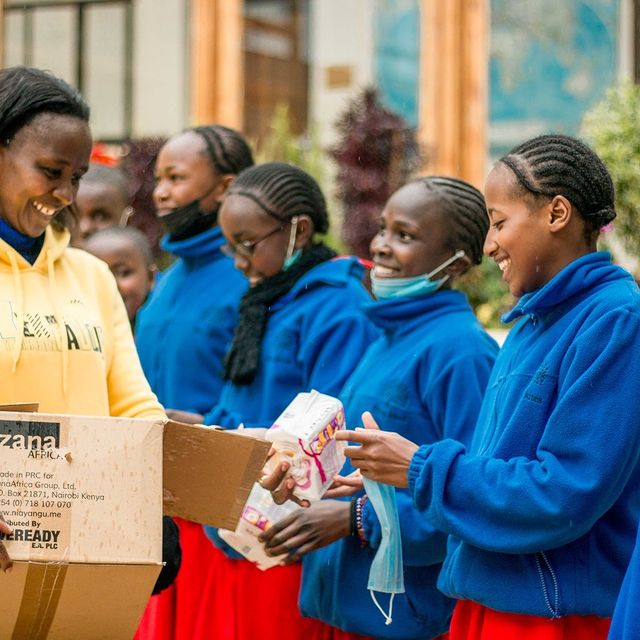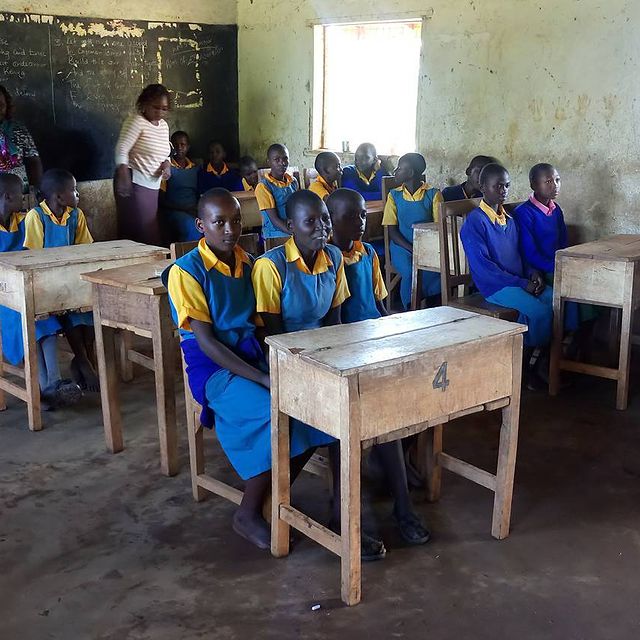As we approach World Menstrual Hygiene Day, we must recognize the importance of incorporating menstrual education into school curriculums.
By doing so, we can address issues like access and affordability of sanitary products, fight period poverty, and encourage sustainable innovations in menstrual products.
This article delves into the significance of menstrual education and how it can positively impact lives, especially in developing countries.

Access and Affordability
Access to sanitary products is a significant challenge for many women and girls worldwide. We can promote awareness and advocate for better access and affordability by including menstrual education in school curriculums.
Access to Sanitary Products in Developing Countries
In developing countries, limited access to sanitary products is a major concern. According to UNICEF, millions of girls miss school during their periods due to inadequate facilities and lack of sanitary products. By incorporating menstrual education in school curriculums, we can help girls and their families understand the importance of proper menstrual hygiene and motivate communities to provide better access to sanitary products.
Also read: Breaking Stigma: Discover the World of Menstrual Hygiene
Fighting Period Poverty: Providing Free or Subsidized Sanitary Products
Period poverty refers to insufficient sanitary products, leading to compromised health and missed educational opportunities. On World Menstrual Health Day, we recognize the importance of addressing this issue. One solution is to provide free or subsidized sanitary products in schools, ensuring all students have access to these essential items.
Menstrual Product Innovations and Sustainability
In recent years, there has been a surge in innovative and sustainable menstrual products, such as reusable pads, menstrual cups, and period underwear. Including information about these products in school curriculums helps promote their use and encourages an environmentally conscious mindset.
Menstrual Health Challenges in Developing Countries: The Kenyan Example

Developing countries like Kenya face unique challenges when it comes to menstrual health. The lack of access to sanitary products, inadequate facilities, and cultural taboos significantly impact the lives of women and girls. In this section, we will discuss the menstrual health situation in Kenya and the inspiring efforts of local girls fighting period poverty.
Period Poverty in Kenya
In Kenya, period poverty is a pressing issue. According to a report by Al Jazeera, many girls are forced to miss school during their periods because they cannot afford sanitary products. This absence from school can lead to a significant gap in education and perpetuate the cycle of poverty.
Cultural Taboos and Stigma
Cultural taboos surrounding menstruation also exacerbate the problem. Many girls in Kenya feel ashamed and embarrassed about their periods, leading to isolation and a lack of community support.
Fighting Period Poverty: The Inspiring Story of Kenyan Girls
Despite these challenges, some Kenyan girls are taking matters into their own hands. The Al Jazeera report highlights the story of girls who have created a small-scale sanitary pad manufacturing project in their school. By producing and distributing affordable pads, these girls are helping their classmates continue their education and empowering their community to tackle period poverty.
Also read: Empowering Women on World Menstrual Hygiene Day: Awareness, Education, and Breaking Taboos
The Importance of Menstrual Education in School Curriculums
By incorporating menstrual education in school curriculums, we can break the stigma surrounding menstruation and empower individuals to make informed decisions about their menstrual health.
Breaking the Taboo
In many cultures, menstruation is still considered a taboo subject. Providing comprehensive menstrual education in schools can help break this stigma and encourage open conversations about periods, leading to a more inclusive and understanding society.
Empowering Individuals
Menstrual education allows individuals to make informed choices about their menstrual health. It equips them with the knowledge to select suitable products, maintain proper hygiene, and understand their bodies better.
Promoting Gender Equality
Menstrual education should not be limited to girls; boys must also learn about periods to foster empathy and understanding. This education can help promote gender equality and create a more inclusive society.
Also read: Empowering Women on World Menstrual Hygiene Day: Awareness, Education, and Breaking Taboos
Maji na Ufanisi: Tackling Period Poverty Through Empowerment.

One of the organizations at the forefront of the fight against period poverty in Kenya is Maji na Ufanisi, a Kenyan-based NGO. Through their inspiring campaign, “Empower A Girl, Change The World – $6 For 5 Years Of Dignity!”, they aim to provide schoolgirls with reusable sanitary pads, ensuring better access to menstrual products and promoting long-term dignity.
Maji na Ufanisi’s Mission
Maji na Ufanisi’s mission is to create sustainable solutions for Kenya’s water, sanitation, and hygiene (WASH) issues.
By focusing on WASH-related projects, the organization addresses the root causes of period poverty and works to improve Kenyan communities’ overall quality of life.
The “Empower A Girl, Change The World – $6 For 5 Years Of Dignity!” Campaign
This innovative campaign by Maji na Ufanisi focuses on providing schoolgirls with reusable sanitary pads. With a donation of just $6, a girl can receive a set of reusable pads lasting up to five years.
This ensures that girls have access to menstrual products and helps them save money in the long run.
The Impact of Maji na Ufanisi’s Work
The work of Maji na Ufanisi has had a significant impact on the lives of many schoolgirls in Kenya.
Providing reusable sanitary pads has helped girls continue their education without interruption and maintain their dignity during their periods. Additionally, this initiative has raised awareness of the importance of menstrual health and hygiene, breaking the stigma surrounding menstruation.
As we celebrate World Menstrual Hygiene Day, let us support organizations like Maji na Ufanisi and work together to ensure every girl has access to the sanitary products and education needed to lead healthy, dignified lives.
Also read: Breaking Stigma: Discover the World of Menstrual Hygiene
Conclusion
Incorporating menstrual education in school curriculums is essential for promoting access and affordability, breaking the taboo around menstruation, and empowering individuals to make informed decisions.
As we celebrate World Menstrual Hygiene Day, remember the importance of advocating for menstrual education in schools and ensuring a brighter, more inclusive future for all.
FAQs
What is World Menstrual Hygiene Day?
- World Menstrual Hygiene Day is an annual event held on May 28th to raise awareness about menstrual hygiene and break the stigma surrounding menstruation.
How can schools help improve access to sanitary products?
- Schools can provide free or subsidized sanitary products, ensure proper facilities for menstrual hygiene, and incorporate menstrual education in their curriculums.
What are some examples of sustainable menstrual products?
- Sustainable menstrual products include reusable pads, menstrual cups, and period underwear.



